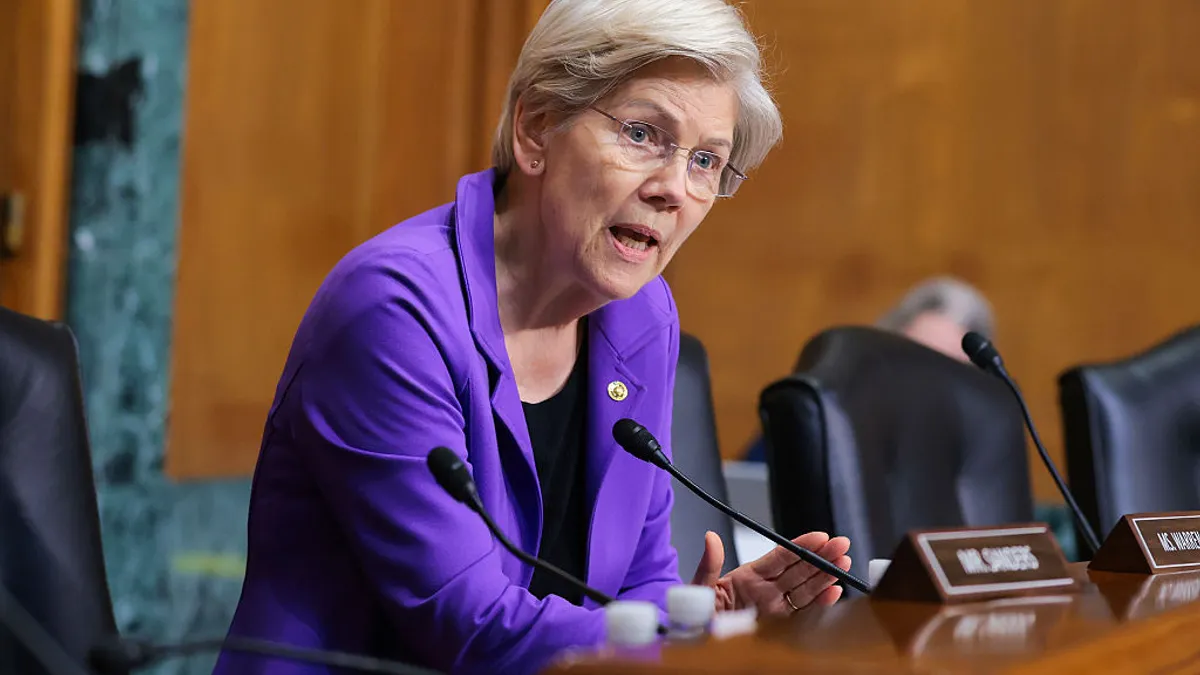Lineage Bank has entered a consent order with the Federal Deposit Insurance Corp. related to its financial technology partnerships, the agency declared in its monthly list of enforcement actions last week.
Under the consent order, which took effect Jan. 29, the Franklin, Tennessee-based lender must implement an enhanced risk management program overseen by its board of directors, increase capital levels, and let go of some fintech partners.
Lineage partnered with fintech enablers Synctera and Synapse to provide banking-as-a-service solutions to its customers.
“Due to our partnerships with organizations like Synctera and Synapse, we’ve been able to tap into the market with great success. We look forward to expanding upon this BaaS growth here in 2023,” Lineage stated in a January 2023 blog post.
The bank has experienced significant growth since 2020, with assets rising from $27 million to nearly $300 million at the end of 2023, according to FDIC call report data.
The order asks the bank’s board to develop and submit a general contingency plan detailing how Lineage Bank “will administer an effective and orderly termination with significant third-party FinTech partners” within 60 days of the order’s effective date.
Additionally, the bank needs to hire a third party to evaluate the management structure and how the bank staff monitor the risk management of Lineage Bank’s BaaS line of business. Based on the evaluation results, the lender will then be required to establish and implement a staffing and action plan to address any weaknesses identified in the report.
The FDIC forbade the bank from entering any new lines of business or expanding its current business in a way that would yield annual growth of 10% or more in total assets or total liabilities without the agency’s prior written approval.
The consent order also dictates that Lineage Bank submit a written capital plan to achieve and maintain a tier 1 leverage capital ratio equal to or greater than 12.5%. It should also achieve and maintain a total risk-based capital ratio equal to or greater than 16%, the agency said.
Lineage recently shook up its C-suite by appointing Jeffrey Hausman as its chairman and naming Carl Haynes, the bank’s chief banking officer, as its CEO, according to the Nashville Business Journal.
Lineage did not reply to a request for comment by press time.
Synapse laid off about 40% of its workforce in October, after its largest client, neobank Mercury, declined to renew its contract with the fintech. Mercury chose to work directly with its partner institution, Evolve Bank & Trust.
“We’ve stood by our partner Lineage during their recent leadership transition,” a Synctera spokesperson told Banking Dive in a statement. “While it’s unfortunate to see them leaving the FinTech space, we’re thankful for their ongoing assistance and support in transitioning our shared FinTechs to new banks within the Synctera community.”
The spokesperson declined to comment on the FDIC notice since it was not on their platform.
Bank-fintech partnership overview
The consent order is the latest fintech partnership-related enforcement action against a bank as regulatory watchdogs continue to ramp up scrutiny of banks of bank-fintech partnerships in the BaaS sector.
Banks have been held more accountable for compliance with laws such as Regulation E, the Truth in Lending Act, and fair lending and anti-money laundering regulations, Clayton J. Mitchell, managing principal at Crowe LLP, told Banking Dive via email.
He highlighted two primary drivers for the increased scrutiny: interagency guidance on third-party risk management and the supervisory community’s focus on the business model.
“Regarding the interagency guidance, it’s put these obligations into light and made the responsibility and accountability even more explicit,” Mitchell said. “Regulators are more aware, know what questions to ask and where to focus their valuable time. That’s driving further supervision, more targeted examinations and surveillance, which will naturally result in increased scrutiny in terms of findings and regulatory actions.”
First Fed Bank entered a consent order with the FDIC in November regarding a fintech it developed through a joint venture.
The Port Angeles, Washington-based bank’s consent order is similar to the actions imposed on fintech-focused banks like Blue Ridge and Cross River. Blue Ridge, a fintech-focused bank, found itself in regulatory cross-hairs after the Office of the Comptroller of the Currency deemed the bank in “troubled condition” after the lender’s alleged continuous failure to maintain a strong and well-staffed Bank Secrecy Act/AML compliance program.
“The regulators’ actions and words affirm that bank-fintech partnerships are necessary to cultivate innovation and meet customer demand on how customers are choosing to consume financial services. However, the directive from regulators is that banks and technology companies are still accountable for responsible innovation,” Sheetal Parikh, deputy general counsel and vice president of compliance at Treasury Prime, told Banking Dive via email.
Parikh has worked at Synapse as its vice president of legal and compliance.
“This means adhering to the same standards of safety and soundness, BSA/AML, and operational compliance that banks are required to satisfy for their existing lines of business,” Parikh said. “We have heard regulators like [the OCC’s acting chief] Mike Hsu reference ... existing regulations like the Bank Service Company Act as a mechanism to exercise direct jurisdiction over technology partners and service providers.”





















